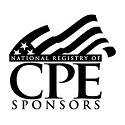CPE Catalog & Events
Income Tax Planning for Bond Investments WEBCAST
-
Your Desk
4.0 Credits
Active versus passive investing. Taxable, tax-exempt, and deferred-tax bonds and the net investment income tax. The tax treatment of bonds purchased at a discount or premium. Bond swap and U.S. Savings Bond strategies.
Triple Your Memory, Prevent Dementia and Halve Your Stress - Part 2 WEBCAST
-
Your Desk
4.0 Credits
How our emotions follow the motion of our body, and how that can be used to instill instant confidence. How to tap into a completely relaxed and/or confident state of mind in 10 seconds or less using advanced hypnotic conditioning and Neuro-Linguistic Programming techniques. How to stay motivated to use the methods outlined in this course to advance your career and achieve a higher quality of life. How to use the concept of constant learning to help you maintain a balanced and fulfilling lifestyle.
Are Those Independent Contractors Really Independent Contractors? WEBCAST
-
Your Desk
1.0 Credits
Classification of workers as employees or independent contractors.
Top Employment Tools to Protect Your Business and Recommend to Business Clients WEBCAST
-
Your Desk
1.0 Credits
Arbitration agreements. Confidentiality agreements. Restrictive covenants. Training. Severance agreements.
Common Audit and Financial Reporting Deficiencies in State and Local Governments WEBCAST
-
Your Desk
2.0 Credits
Financial statement preparation. Common mistakes made in preparing financial statements. GASB financial statement preparation standards.
2024 Washington State CPA Ethics by Jim Rigos WEBCAST
-
Your Desk
4.0 Credits
An increased sensitivity for factual situations leading to accounting ethical issues and potential legal dilemmas. More confidence in your personal and professional accounting ethical judgments Familiarity with AICPA and Washington State Board ethical reporting and compliance procedures with particular emphasis on different or elevated Washington treatment. This course contains case study scenarios demonstrating numerous actual reported Board cases. Identifying dollar claim and possible risk reduction techniques and procedures of potential client or third party legal or ethical claims. 4 hours of CPE credit approved by the Washington State Board of Accountancy.
Identifying, Evaluating and Solving Financial Planning Issues WEBCAST
-
Your Desk
4.0 Credits
Cash flow management and budgeting. Insurance. Investments. Education. Income tax. Retirement. Estate planning. Closely-held business owners. Marriage, cohabitation and divorce
Excel - Working with Text, Date and Time Functions and Formulas WEBINAR
-
Your Desk
2.0 Credits
Using Text functions to join and separate text entries. Inserting Text functions to work with imported data. Perform date and time calculations with the Date and Time functions.
GASB 96 -SBITA, GASB 94 P3, and GASB 87 Leases (Year 2) WEBCAST
-
Your Desk
2.0 Credits
Requirements of GASB 96, GASB 94, and GASB 87. Implementation of GASB 96, 94 and 87.
K2's 2023 Safeguarding Taxpayer Data - A Guide For Your RequiredSecurity Plan WEBCAST
-
Your Desk
2.0 Credits
Understand the need to protect client data. Learn about the required security and privacy standards. Leave with a sample plan to consider your tax practice.
Imagining a World Without Non-Competes WEBCAST
-
Your Desk
1.0 Credits
Federal non-compete law. State non-compete law.
Navigating Leaves of Absence WEBCAST
-
Your Desk
1.0 Credits
Family Medical Leave Act - full time and intermittent. Americans With Disabilities Act . Special rules for managers . Handling fraud, abuse, and performance issues in connection with a leave of absence.
Audit Risk Assessment in Plain English WEBCAST
-
Your Desk
2.0 Credits
Overview of audit risk assessment. AICPA's clarified risk assessment standards. SAS 145. Assessing the entity's environment.
A&A Update for Closely Held Businesses WEBCAST
-
Your Desk
4.0 Credits
Recently issued FASB Accounting Standards Updates, including those that will become effective during audit engagements conducted in 2024. Recently issued Statements on Auditing Standards and other AICPA activity. Recently issued Statements on Standards for Accounting and Review Services.
ChatGPT: What Every CPA Should Know WEBINAR
-
Your Desk
2.0 Credits
Overview of the current landscape for AI in business. History of ChatGPT and generative AI. Fundamentals of generative AI technology and related nomenclature. ABC's of how to use ChatGPT. Demonstration of practical ChatGPT applications for accounting, finance, and tax. A word of caution: What you should be concerned about. Developing a ChatGPT usage policy for your firm.
Negotiation Strategy: What to do Before, During and After WEBCAST
-
Your Desk
1.8 Credits
Negotiation.
Why Can't We All Just Get Along? Understanding and Appreciating Our Differences WEBCAST
-
Your Desk
1.0 Credits
Emotional intelligence. Communication. Teamwork.
The Future of Communication: How AI and Synthetic Media Can Transform Your Business WEBCAST
-
Your Desk
1.2 Credits
Communication. Technology. AI. Synthetic media. Strategy. Leadership. Management. Time management. Productivity.
Fraud Risk and Audit Requirements WEBCAST
-
Your Desk
2.0 Credits
Fraud trends. Audit requirements related to fraud.
Collaborative Communications: Working with Diverse Styles WEBCAST
-
Your Desk
2.5 Credits
Communications.
Not finding what you're looking for? Click the Change Category bar above for more options!

The Washington Society of CPAs is registered with the National Association of State Boards of Accountancy (NASBA) as a sponsor of group-live and group-internet-based continuing professional education on the National Registry of CPE Sponsors. State boards of accountancy have final authority on the acceptance of individual courses for CPE credit. Complaints regarding registered sponsors may be submitted to the National Registry of CPE Sponsors through its web site: www.nasbaregistry.org
